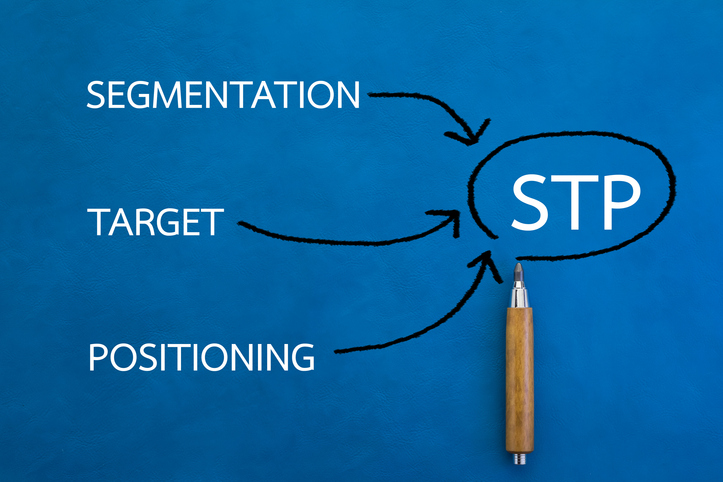4 min read
3 min read
Evaluating Outcomes: Key Steps To Improving Your Marketing Strategy
![]() The Amazing Team at Focus Digital Marketing
:
Apr 19, 2024 1:43:45 PM
The Amazing Team at Focus Digital Marketing
:
Apr 19, 2024 1:43:45 PM
Discover the essential steps to effectively evaluate outcomes and enhance your marketing strategy for long-term success.
Understanding the Importance of Outcomes Evaluation
Effective marketing strategies are built on a foundation of outcomes evaluation. By understanding the importance of evaluating outcomes, marketers can identify what is working and what needs improvement. It allows them to measure the success of their marketing efforts and make data-driven decisions.
Outcomes evaluation provides valuable insights into the effectiveness of various marketing tactics and campaigns. It helps marketers understand the impact of their strategies on key performance indicators such as brand awareness, customer engagement, and sales. By evaluating outcomes, marketers can gain a deeper understanding of their target audience and tailor their marketing messages accordingly.
Moreover, outcomes evaluation enables marketers to identify areas of improvement. It allows them to pinpoint the strategies and tactics that are not delivering the desired results and make necessary adjustments. By continuously evaluating outcomes, marketers can optimize their marketing strategies and achieve better performance over time.
Implementing Improvement Strategies
Once the outcomes evaluation process has identified areas for improvement, it is crucial to implement the necessary strategies to enhance the marketing strategy. This involves analyzing the data and insights gathered from the evaluation process and developing actionable plans.
Implementing improvement strategies may include refining the target audience, adjusting marketing messaging, optimizing advertising channels, or adopting new marketing technologies. It is important to prioritize the strategies based on their potential impact and feasibility. By implementing improvement strategies, marketers can address the identified gaps and enhance the overall effectiveness of their marketing efforts.
Conducting Performance Analysis
Performance analysis is a critical step in evaluating marketing outcomes. It involves analyzing the key performance indicators (KPIs) to assess the effectiveness of marketing strategies and tactics. By conducting performance analysis, marketers can gain insights into the performance of their campaigns and make informed decisions to optimize their marketing efforts.
During the performance analysis process, marketers should compare the actual results with the predefined goals and objectives. This helps in identifying areas of success and areas that require improvement. It is important to measure both quantitative and qualitative metrics to get a comprehensive understanding of the marketing performance. By conducting regular performance analysis, marketers can track progress and make data-driven adjustments to their marketing strategies.
Enhancing Program Evaluation for Optimal Results
To achieve optimal results, marketers need to continuously enhance their program evaluation process. This involves refining the evaluation methods, tools, and metrics to ensure accurate and meaningful insights.
Enhancing program evaluation may include adopting advanced analytics tools, implementing customer feedback mechanisms, conducting A/B testing, and leveraging market research data. By continuously improving the program evaluation process, marketers can gather more precise data and make more informed decisions to optimize their marketing strategies.
It is also important to involve key stakeholders in the program evaluation process. This includes marketing team members, management, and even customers. By gathering different perspectives and insights, marketers can gain a holistic view of the marketing performance and identify areas for improvement.
Monitoring Progress Continuously
Monitoring progress is an essential step in improving marketing strategies. It involves continuously tracking the performance of marketing efforts and measuring the impact of implemented improvement strategies.
By monitoring progress, marketers can identify trends, patterns, and potential issues that may arise. This allows them to take proactive measures and make timely adjustments to their marketing strategies. Continuous monitoring also helps in identifying emerging opportunities and staying ahead of the competition.
To effectively monitor progress, marketers should establish key performance indicators (KPIs) and set up a system to track and measure them. This can include using analytics tools, conducting regular reporting, and gathering feedback from customers and stakeholders. By monitoring progress continuously, marketers can ensure that their marketing strategies are on track and delivering the desired results.
Assessing Long-term Impact
Assessing the long-term impact of marketing strategies is crucial for sustainable success. It involves evaluating the outcomes and performance of marketing efforts over an extended period.
By assessing the long-term impact, marketers can identify the effectiveness and sustainability of their marketing strategies. This helps in making informed decisions about future marketing investments and resource allocation. It also provides insights into the overall brand reputation and customer loyalty.
To assess long-term impact, marketers should analyze historical data, conduct customer surveys, and gather feedback from stakeholders. By understanding the long-term impact of their marketing strategies, marketers can refine their approach and ensure continuous improvement.
Also Read: Keywords: The Building Blocks of Your SEO Strategy
For more insights and resources on digital marketing strategies, visit Focus Digital Marketing.
FAQs
-
What is the purpose of evaluating marketing outcomes?
To measure success and identify areas for improvement. -
How can marketers enhance their marketing strategy?
By implementing improvement strategies based on evaluation outcomes. -
What is crucial for conducting performance analysis in marketing?
Comparing actual results with predefined goals. -
How can program evaluation be enhanced for better marketing results?
By adopting advanced analytics tools and involving key stakeholders. -
Why is assessing the long-term impact important in marketing?
To ensure the effectiveness and sustainability of marketing strategies.

3 min read
Top Strategies for a Successful E-Commerce Store
E-commerce has grown to exponential limits in recent years, and that turned the market into an even more competitive place. As the inclination of...

4 min read
Unlocking the Power of STP in Digital Marketing
Every marketer dreams of crafting that perfect campaign that not only reaches but resonates with their audience. In the vast ocean of digital...



